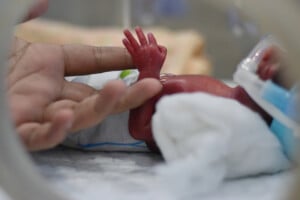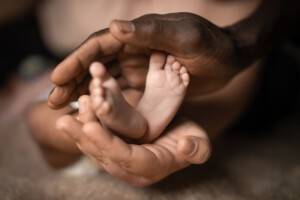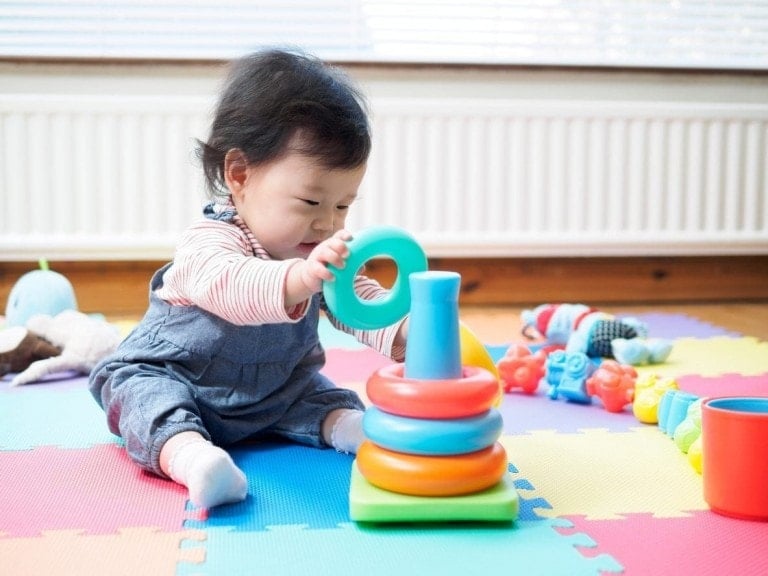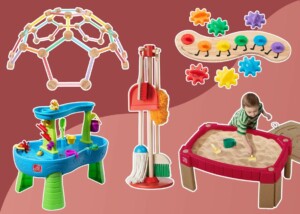From crying to using single-word expressions. From needing to be held throughout the day to walking. Or from wearing diapers to wearing underwear. These are the most significant and celebrated milestones within the first three years of a child’s life. And when our rapidly developing babies start to show signs of regressive behavior, it can be baffling.
Moms and dads are integral in nurturing language and developing their child’s strength, balance, and coordination to achieve physical independence. Language and physical prowess grow rapidly in the early years, and both parents and children take joyful pride in the outcomes of their collaborative efforts. But what happens when children with the capacity for language suddenly refuse to use their words? When they resort back to crying and screaming to communicate ideas, feelings, and needs? What should parents think when they go from chasing down their tiny track stars to being begged to be carried 24/7? And when your fully potty-trained 3-year-old starts having frequent accidents and insists on wearing a diaper to go poop, what should you do?
Regressive Behaviors May Show Growth
Regressive behaviors can be confusing and even worrisome for parents. You may struggle to figure out why there’s been a sudden relapse in your child’s progress. There may also be a certain level of worry that something might be wrong.
It’s common to interpret regressive behaviors as a sign that a child is overwhelmed or confused and needs assistance. For example, when a child cries and points to a sippy cup of milk, a parent’s instinct is to give them the milk immediately because the child must be thirsty. When your child wants you to hold them frequently, the natural tendency is to provide comfort to soothe the perceived insecurity. Or when there’s a sudden refusal to eliminate in the potty, parents give in and give the child a diaper.
Today’s moms and dads are highly informed about early childhood milestones. They play a deliberate and active role in ensuring their kids are prepared. Many parents work hard to ensure their child is on course to meet developmental benchmarks, and maintaining progress is imperative. Parents shouldn’t hesitate to continue nurturing their children’s growth. You only need to adjust your interpretation of these perplexing behaviors slightly. Then, you can intervene in a manner that assists your little one in feeling confident to move to the next level. Let’s take a look at different areas of regression in children:
Language Regression
Newborns cry and scream to tell their caregivers that they need something.1 Adults must respond to these communications because infants are entirely dependent beings. However, at a certain point, screaming becomes a learned behavior. When parents react to a screaming child by giving them what they want, the child understands that mom or dad will respond when they scream — and usually in a positive way.
When a young child begins to make deliberate sounds attached to desired objects and people, this is actually a sign of growth. So, your parental expectations must follow suit. This means that if your child is capable of language, you should require it from them. Giving a screaming child more milk when they’re capable of saying “ma,” “more,” “more milk,” or “I want more milk, please,” takes away their opportunity to develop more language.
Instead, you should calmly and patiently wait for their screams to dissipate to elicit more age-appropriate communications. Then, encourage, model, and require language when and wherever possible.2 In doing so, children take pride in using their newfound skills to express their needs and feelings. And your relationship with your child can go from contentious to harmonious in no time.
Potty Training Regression
The potty training process can be long and arduous. Once they achieve it, parents and children generally feel a sense of relief and freedom. However, it isn’t uncommon for the whole or part of the process to shift in reverse at a certain point, even after a child functions independently on the potty.3
Potty training relies on the physical ability to manipulate clothing and muscle control.4,5 However, potty training is also an emotional process for young children. They learn to regulate independently and tend to their personal needs with minimal adult assistance. Holding poop for extended periods and/or demanding a diaper is a child’s way of controlling their world and feelings of uncertainty.6 A parent’s instinct in this situation is often to protect their child from emotional discomfort by providing empathy and giving them a diaper. Unfortunately, this type of intervention creates the opposite effect: your empathetic words and offering of a diaper reinforce your child’s feeling of uncertainty.
To solve regression in potty training, ensure your child stays on a schedule by visiting the potty regularly throughout the day.7,8 Most importantly, moms and dads must express confidence to and in their children. You need to communicate that everything is okay and there’s nothing to worry about. This will help convince your child that they’re physically and emotionally capable.3
Walking Regression
Nothing is more assuring to a newborn than being held in mommy or daddy’s arms. The bond between parent and child is enormous during this very dependent period.9,10 Baby associates love, care, and security with being carried throughout the day.11 As the months go by, parents diligently facilitate milestones such as rolling over, sitting up, scooting, crawling, and standing. These physical accomplishments lay the foundation for the strength, balance, and coordination needed for a child to walk independently.12,13
Toddlers typically celebrate their walking achievements by sprinting and exploring every aspect of their environment. It’s all parents can do to keep pace while ensuring their children stay safe. This period can seem like a never-ending marathon until your child decides that walking is no longer a pleasure or a privilege. Suddenly, your toddler demands that you pick up, hold, and carry them at home and on outings.
For a child, the newfound skill of walking creates blissful excitement and freedom in the initial stages. However, moving from the security of a parent’s arms to total autonomy can also have a troubling effect on a young child.14 It may be a parent’s instinct to comfort this insecurity, but a more effective method is to continue requiring your child to walk when and where appropriate. Then, parents must learn to connect with their child when they’re walking. In this way, your child learns to create a positive association between walking and receiving love and attention from you.
Nurture and Attend to the Progress, Not the Regressive Behaviors
On the surface, regressive behavior appears problematic. However, when you understand it as a sign of readiness, you can recognize that your child needs their behavioral requirements raised to match their capacity. Young kids live up to these expectations when parents lift the behavioral bar to age-appropriate levels. They also gain a sense of security, knowing their parents believe in them. And they enjoy newfound confidence that they’re capable of moving forward.



































